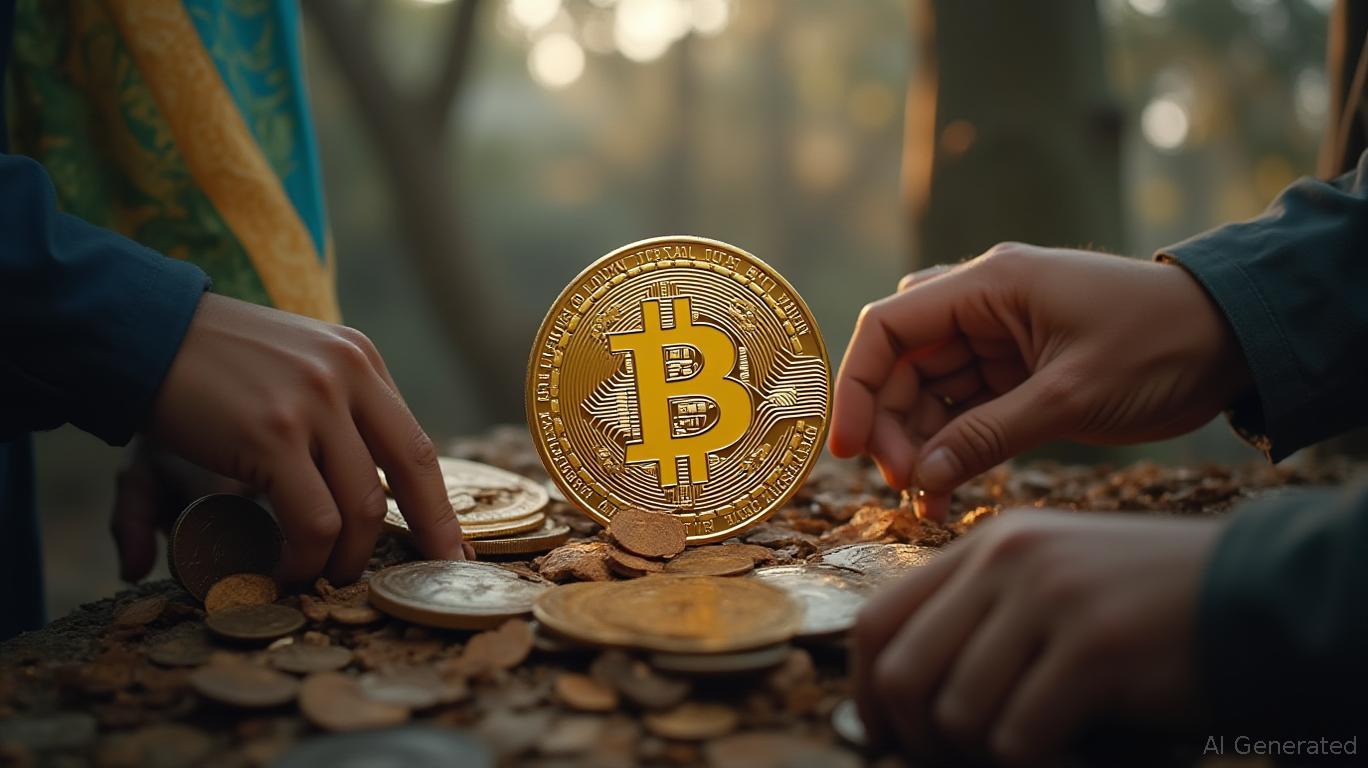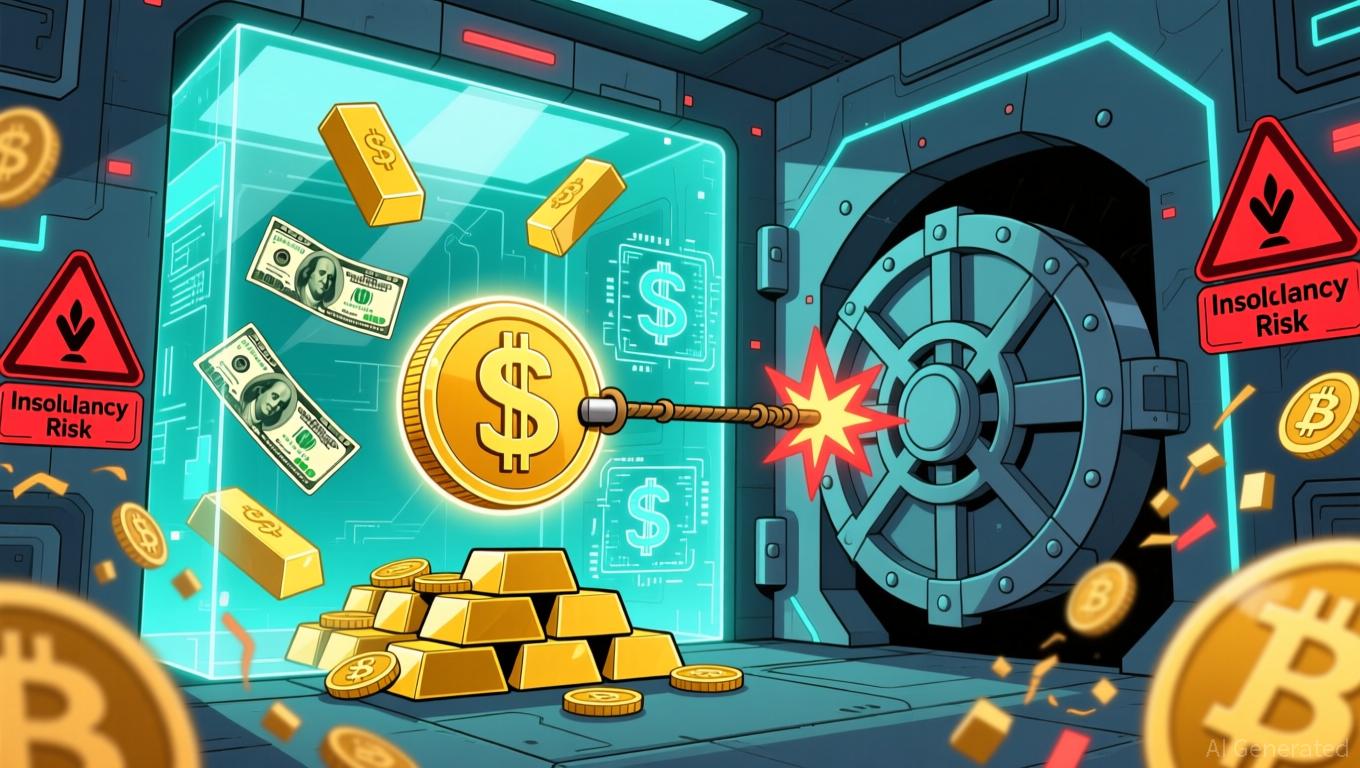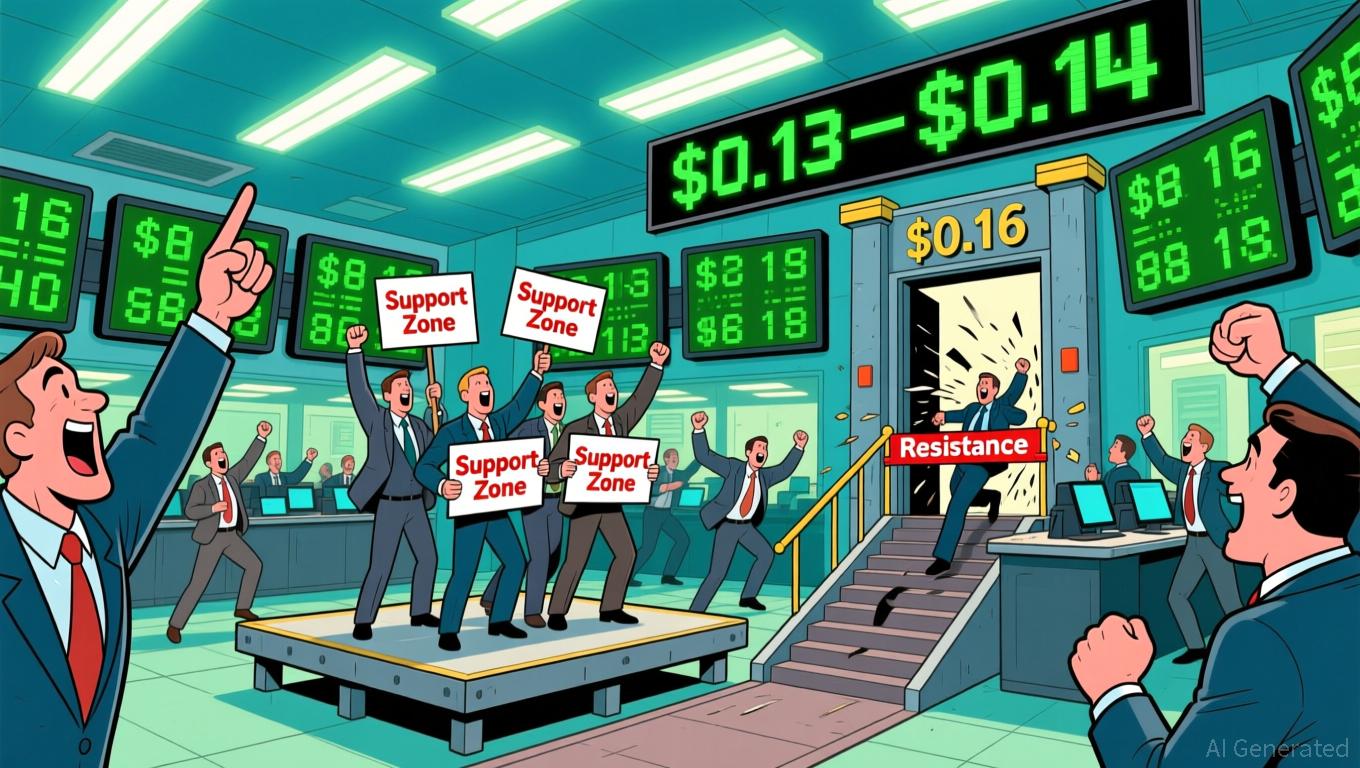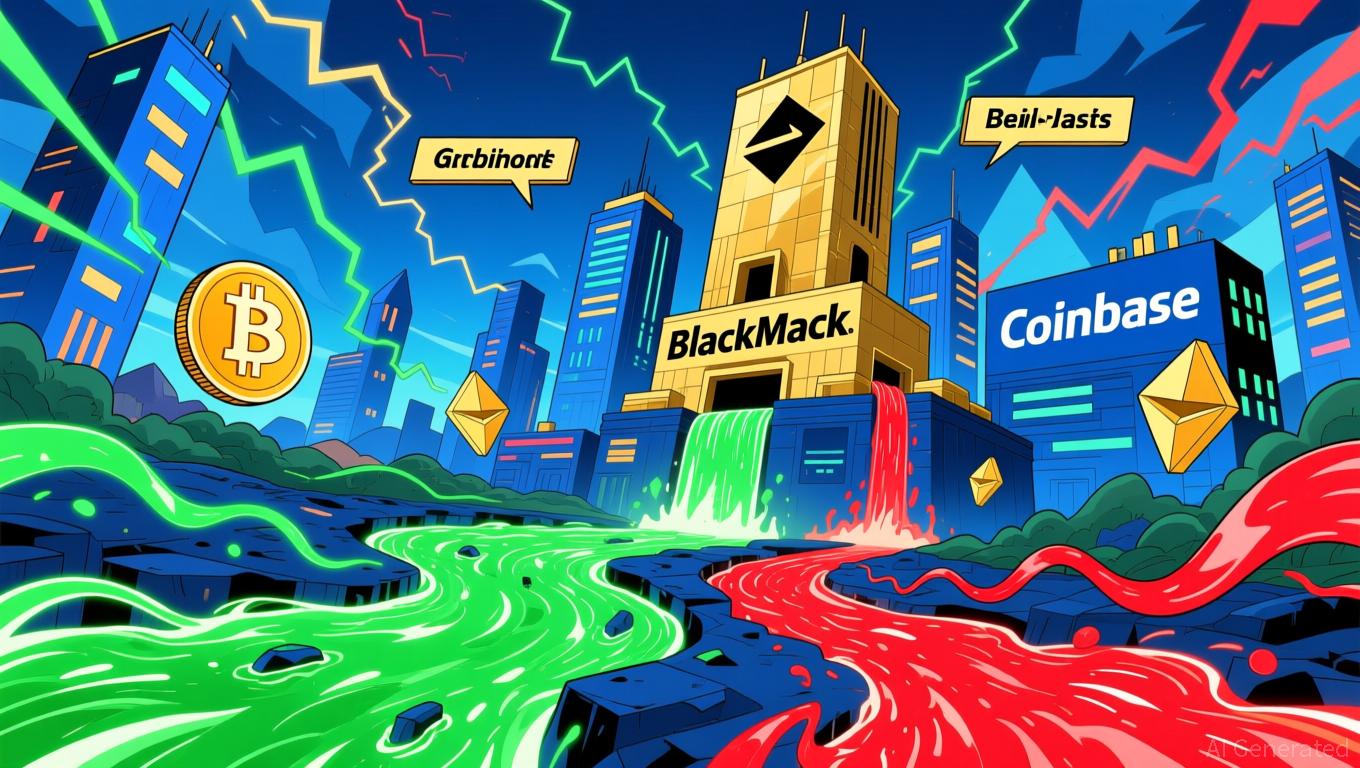Venezuela’s Bet on USDT: Evading Sanctions at the Expense of National Autonomy?
- Venezuela’s government increasingly uses Tether’s USDT to bypass U.S. sanctions and stabilize its hyperinflation-stricken economy. - PDVSA and private businesses now conduct 50% of oil transactions via USDT, injecting $119M into the private sector in July 2025 alone. - USDT dominates Venezuela’s digital-dollar ecosystem, but raises sovereignty risks as Tether and U.S. regulators control key financial nodes. - Despite USDT’s 70% market share, Venezuela’s 2025 inflation is projected at 162%, highlighting s

Venezuela’s authorities have ramped up their use of Tether’s
Since October 2024, the bolívar has depreciated by more than 70%, and annual inflation soared to 229% as of May 2025. In response, the government permitted private firms to exchange bolívars for USDT using state-approved digital wallets, injecting $119 million into the private sector in July 2025 alone. PDVSA’s use of USDT for half of its oil sales signals a broader embrace of stablecoins to keep trade moving while avoiding U.S. sanctions.
This shift points to a wider, unofficial dollarization through digital assets. Stablecoins now play a central role in everyday payments, wages, and remittances, with Venezuela ranking ninth worldwide in crypto adoption according to Chainalysis 2025 figures. More than 9% of the $5.4 billion in remittances sent to Venezuela in 2023 arrived via cryptocurrency, cutting costs and speeding up transfers compared to traditional methods. Still, this heavy use of USDT raises questions about Venezuela’s control over its own currency, as outside parties like
U.S. regulatory measures have complicated Venezuela’s approach. Tether has blocked wallets associated with PDVSA and other sanctioned organizations, enforcing U.S. sanctions compliance. The Office of Foreign Assets Control (OFAC) has increased oversight of stablecoin providers, introducing new risks to Venezuela’s digital dollar system. Despite these obstacles, USDT’s leading position—making up 70% of the $277 billion stablecoin market—ensures it remains vital for economic transactions.
Experts warn that although USDT offers immediate relief, it deepens Venezuela’s long-term reliance on external systems. The country’s economy shrank by 2.7% in the first quarter of 2025, and forecasts predict 162% inflation for the year. The government’s foreign currency injections—totaling $2 billion in the first seven months of 2025, a 14% drop from the previous year—have further increased dependence on USDT. This path may also contribute to fragmentation in the global financial order, as countries like China seek alternatives to the U.S. dollar’s dominance.
Venezuela’s embrace of USDT illustrates both the benefits and risks of stablecoins: they offer a lifeline for struggling economies but can also spark geopolitical friction. As the bolívar continues to lose value, Venezuela’s digital dollarization could serve as a model for other nations in crisis, though it also heightens vulnerability to outside economic and regulatory forces.
Disclaimer: The content of this article solely reflects the author's opinion and does not represent the platform in any capacity. This article is not intended to serve as a reference for making investment decisions.
You may also like
Bitcoin News Update: S&P Rating Drop Highlights Tether’s Risky Asset Holdings and Lack of Transparency
- S&P downgrades Tether's USDT to "5 (weak)" due to high-risk reserves and transparency gaps. - Tether's 5.6% BTC exposure exceeds overcollateralization margins, risking undercollateralization if prices drop. - CEO dismisses critique as traditional finance bias, claiming no "toxic" assets in reserves. - Regulators intensify scrutiny as stablecoin centralization risks emerge amid $184B USDT circulation. - S&P urges Tether to reduce risky assets and enhance reserve disclosure to rebuild trust.

Dogecoin Latest Updates: Is a Repeat Performance on the Horizon? Holding $0.15 May Signal a 611% Rally for Dogecoin
- Dogecoin (DOGE) stabilized near $0.15 support, triggering historical 611% rally potential to $1 by 2026. - Grayscale's GDOG ETF and pending Bitwise BWOW ETF mark institutional adoption, though initial inflows remain muted. - Technical indicators show mixed momentum with RSI near oversold levels and key resistance at $0.16. - Market remains divided as ETF-driven liquidity and on-chain infrastructure contrast with macroeconomic and regulatory risks.

Turkmenistan’s Approach to Cryptocurrency: Centralized Oversight Amidst a Decentralized Age
- Turkmenistan legalizes crypto trading under strict 2026 regulations, granting state control over exchanges, mining , and custodial services. - Law mandates KYC/AML compliance, bans traditional banks from crypto services, and classifies digital assets into "backed" and "unbacked" categories. - Central bank gains authority to operate state-monitored distributed ledgers, contrasting with decentralized approaches in South Korea and Bhutan. - Framework aims to balance innovation with oversight, testing Turkme
Bitcoin News Update: Has $162 Billion Left Crypto Due to Institutional Buying or a Broader Market Pullback?
- BlackRock deposited 4,198 BTC and 43,237 ETH into Coinbase amid crypto sell-offs, despite $355.5M Bitcoin ETF outflows. - A 1.8M BTC ($162B) overnight exchange withdrawal sparks speculation about institutional accumulation or portfolio rebalancing. - $40B in BTC/ETH exchange inflows and record $51.1B Binance stablecoin reserves highlight institutional demand for regulated crypto products. - On-chain data shows 45% of large deposits (≥100 BTC) and 1.8M BTC withdrawals, indicating mixed market sentiment ah
